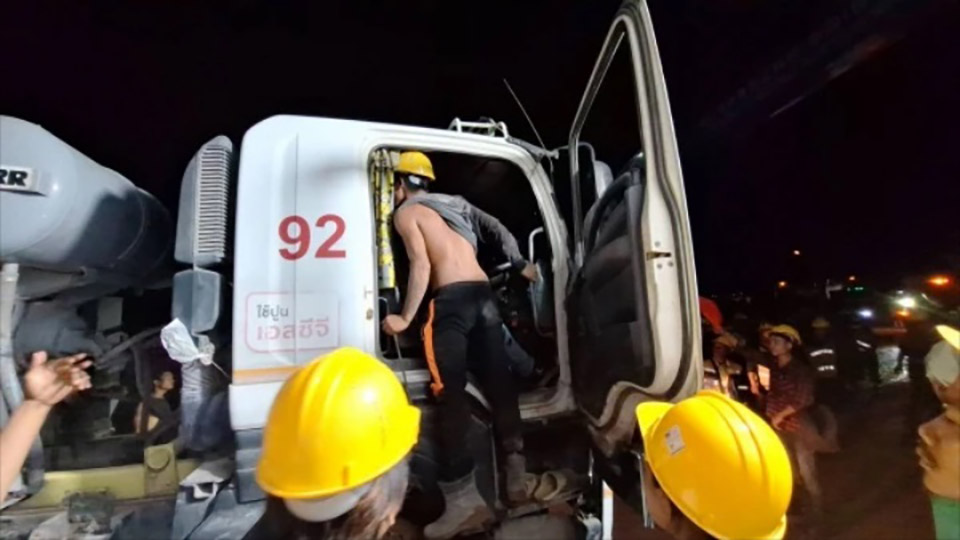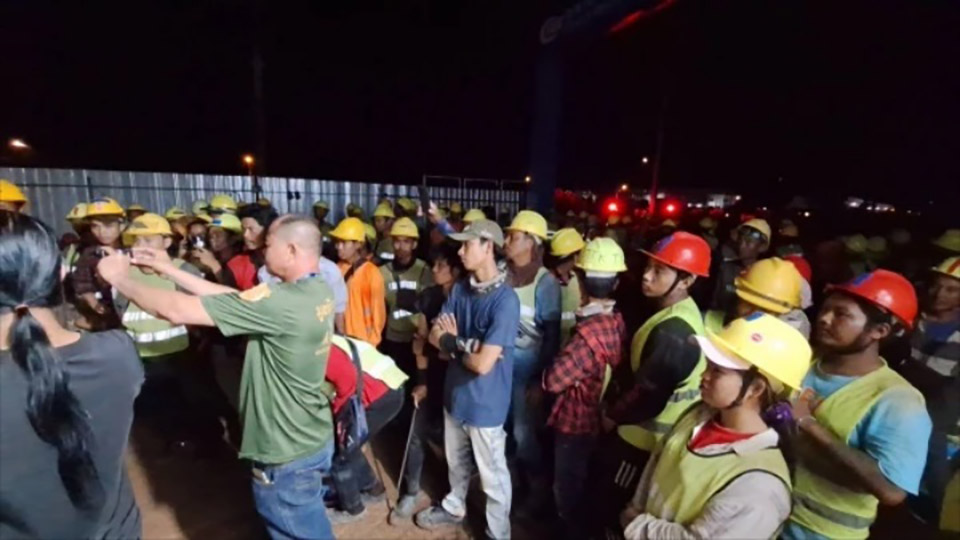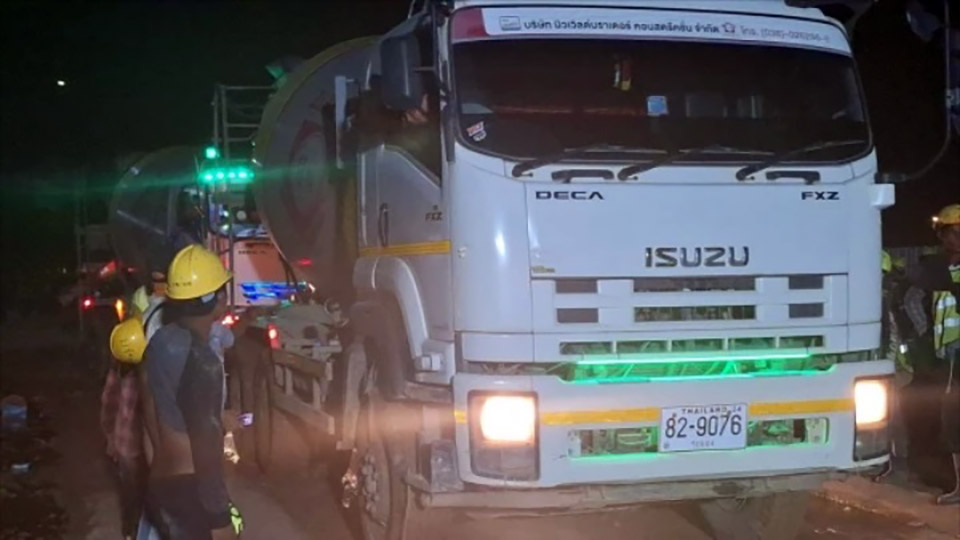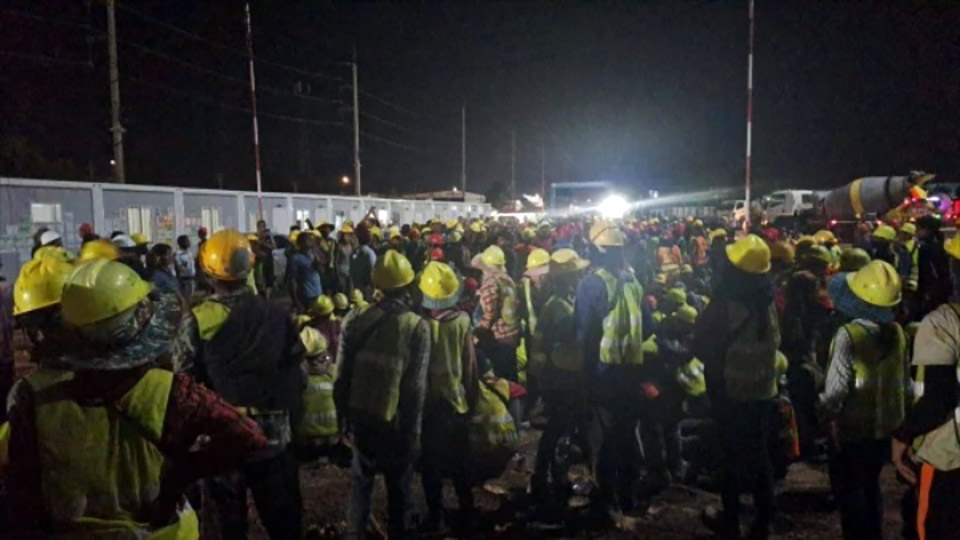
PRACHINBURI, Thailand – Over 700 migrant workers from Myanmar and Cambodia gathered in protest at a Chinese-owned factory in Rojana Industrial Park, Sri Maha Pho District, Prachinburi, blocking entry and exit to the factory on August 16. The workers, who have not received their wages for two months, are demanding full payment and refusing to allow delivery trucks into the premises until negotiations are reached. The protest has escalated since yesterday evening and shows no signs of resolution.
Workers are struggling with mounting financial pressures, including rent payments, and have rejected an initial offer of 500 baht each as temporary relief. A worker representative stated, “We no longer trust the promises of the subcontractors after waiting over two months without receiving any wages. This offer only fueled further outrage among the protesters.”
The protest has been divided into two groups: one is stationed at the factory’s main gate to prevent Chinese executives from leaving, though they are allowing Thai workers and executives to exit.

According to Mr. Min, a worker representative, the Chinese-owned factory hired laborers through 11 different Chinese subcontracting agencies. One of these agencies has failed to pay workers for three months.The factory reportedly distributed 1 million baht to three major agencies, each receiving 300,000 baht to cover workers’ rent.
However, the workers are demanding full payment of their wages, leading to a stalemate in negotiations. Each worker is owed a significant amount, and the situation remains unresolved, with over 400 workers continuing to guard the factory. Many female workers have returned to their accommodations to await further updates.
Mr. Aung, a leader among the Myanmar workers, expressed deep skepticism about the subcontractors, stating that the factory had already paid the subcontractors, but the funds were not passed on to the laborers.










